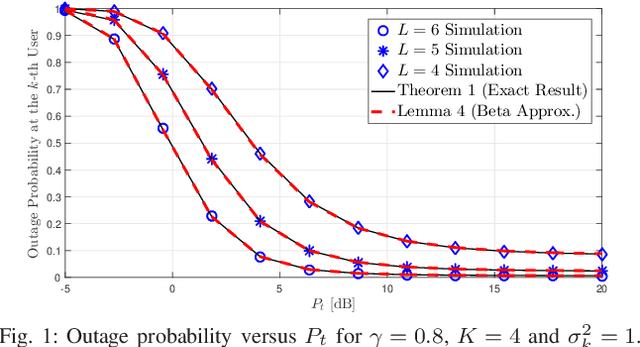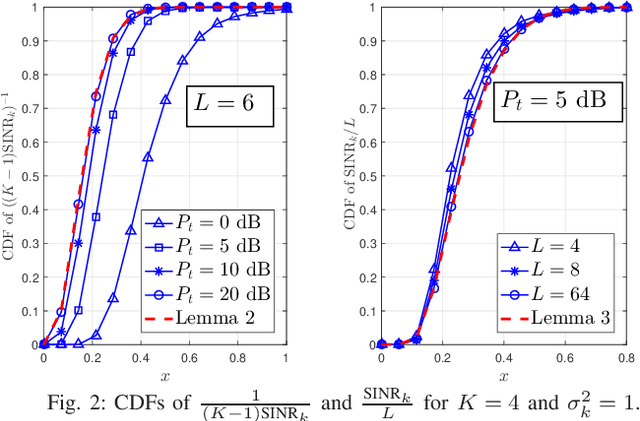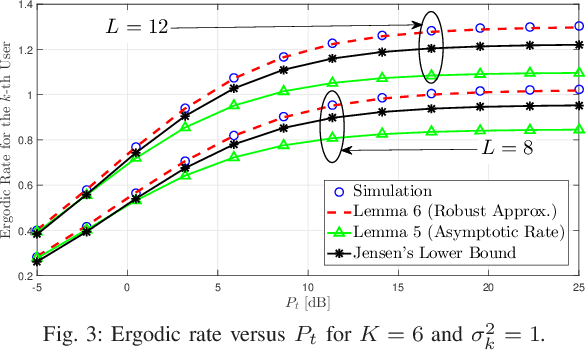Petros Elia
Exact SINR Analysis of Matched-filter Precoder
Jan 30, 2024


Abstract:This paper answers a fundamental question about the exact distribution of the signal-to-interference-plus-noise ratio (SINR) under matched-filter (MF) precoding. Specifically, we derive the exact expressions for the cumulative distribution function (CDF) and the probability density function (PDF) of SINR under MF precoding over Rayleigh fading channels. Based on the exact analysis, we then rigorously prove that the SINR converges to some specific distributions separately in high SNR and in massive MIMO. To simplify the exact result in general cases, we develop a good approximation by modelling the interference as a Beta distribution. We then shift to the exact analysis of the transmit rate, and answer the fundamental question: How does the exact rate converge to the well-known asymptotic rate in massive MIMO? After that, we propose a novel approximation for the ergodic rate, which performs better than various existing approximations. Finally, we present some numerical results to demonstrate the accuracy of the derived analytical models.
Multi-User Distributed Computing Via Compressed Sensing
Jan 09, 2023Abstract:The multi-user linearly-separable distributed computing problem is considered here, in which $N$ servers help to compute the real-valued functions requested by $K$ users, where each function can be written as a linear combination of up to $L$ (generally non-linear) subfunctions. Each server computes a fraction $\gamma$ of the subfunctions, then communicates a function of its computed outputs to some of the users, and then each user collects its received data to recover its desired function. Our goal is to bound the ratio between the computation workload done by all servers over the number of datasets. To this end, we here reformulate the real-valued distributed computing problem into a matrix factorization problem and then into a basic sparse recovery problem, where sparsity implies computational savings. Building on this, we first give a simple probabilistic scheme for subfunction assignment, which allows us to upper bound the optimal normalized computation cost as $\gamma \leq \frac{K}{N}$ that a generally intractable $\ell_0$-minimization would give. To bypass the intractability of such optimal scheme, we show that if these optimal schemes enjoy $\gamma \leq - r\frac{K}{N}W^{-1}_{-1}(- \frac{2K}{e N r} )$ (where $W_{-1}(\cdot)$ is the Lambert function and $r$ calibrates the communication between servers and users), then they can actually be derived using a tractable Basis Pursuit $\ell_1$-minimization. This newly-revealed connection between distributed computation and compressed sensing opens up the possibility of designing practical distributed computing algorithms by employing tools and methods from compressed sensing.
 Add to Chrome
Add to Chrome Add to Firefox
Add to Firefox Add to Edge
Add to Edge